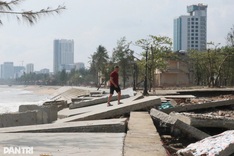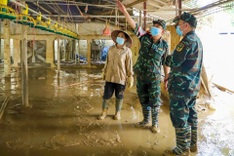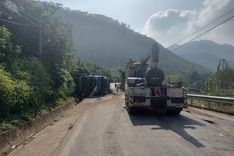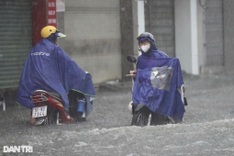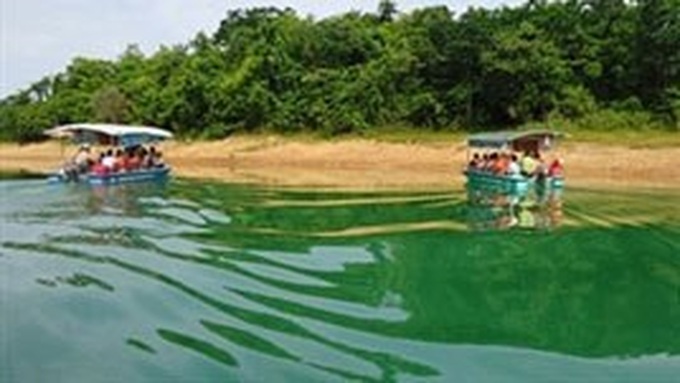
The park is located about 45km from the central province of Thanh Hoa's heart on the southwest, the 16,000ha park, half of which is virgin forest.
Farmer Lo Van Quang, 45, a member of the Tay ethnic people, said locals were happy to join the programme started five years ago by the Japanese camera company Canon. To date, more than 140ha of new forests have been replanted.
Do Xuan Loc, deputy head of Thanh Hoa Department of Agriculture and Rural Development's Forest Ranger Branch, said he hoped the project could be expanded to bring more green to Thanh Hoa and the park itself.
Quang said since joining the programme, residents had learned about the need to grow trees and how to protect the environment to develop tourism, which is largely based on the forests, lakes and caves that fill the park.
Until the replanting work began, his family earned a small living growing rice. But, following advice from tourism authorities, he borrowed money and built a new house on stilts, which is now also used for a homestay.
"I also learned to greet and help travellers tour the park. As a result, we now earn a total of about VND4-5 million (US$180-230) per month," Quang said.
Primitive forest covers 8,544-ha of the park, which features a 3,000ha lake with 21 islets. Studies have revealed 1,389 species of plants, 1,004 species of animals, 201 species of birds, 54 species of reptiles, 31 species of amphibians, 68 species of fish and 499 species of insects.
The park was established in 1992 and gradually expanded. It is not only a protected breeding ground for many rare creatures, but also an attractive destination for ecotourism. Ben En has a wide and diverse system of lakes, caves, mountains and forest. The two biggest lakes are Ben En Lake and Muc Lake.








